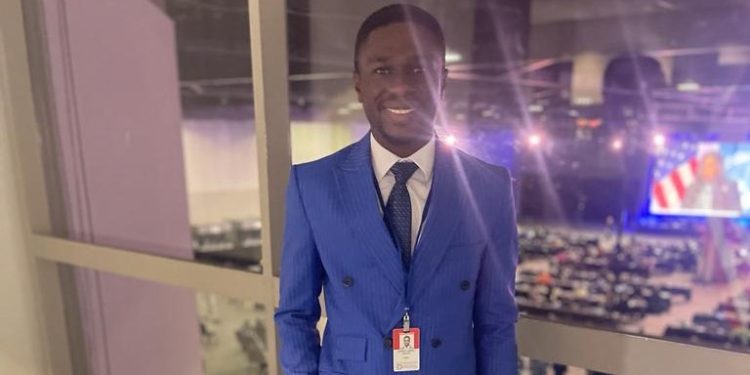Why Ghana is not winning corruption war despite investments in the fight
I had the privilege of addressing a small but influential, dedicated anti-corruption advocate abroad, exploring the reasons behind Ghana and Africa’s ongoing struggle against corruption, despite numerous interventions.
Allow me to present my speech for reflection and consideration by those who may come across it.
Someone whispered that the young people were taking over management. I look young, but I am old. I am just handsome – lol. I am on the 4th floor, as we call it. With close to 15 years of experience in both practising and teaching public interest journalism, concurrently working as a risk analyst for an international firm, followed by six (6) years as a defense attorney, and currently serving in law enforcement with a specialized focus on anti-corruption for nearly two years, I have concluded that, as a society, we do not vehemently oppose corruption.
What we truly detest cannot thrive, and if it does, it remains concealed without impunity. Take, for instance, homosexuality – a topic most Ghanaians vehemently oppose. They won’t tolerate any suggestion, even from a human rights perspective, that it could be considered normal. While there are gays, lesbians, and transgender individuals in Ghana, they seldom stand up to be acknowledged, living in constant fear. This is not a life worth living.
Contrastingly, the corrupt live with impunity, devoid of fear. They are confident in the support they would receive, even in the worst-case scenario of exposure. They enjoy backing from citizens. Initially, I believed that leadership was the primary issue. Now, I am convinced that the people are a significant part of the problem. They defend and protect the corrupt, idolize them, and criticize those attempting to ensure sanity prevails. There exists a pervasive mantra in their echo chamber – “everyone has an interest” or “we are all the same.” This mindset undermines efforts to expose corruption.
The harsh reality is that many people do not realize they are victims of corruption. And for those who do, some simply do not care. The focus is on immediate gains, whether it’s support for building a house, purchasing an apartment, or enjoying ill-gotten wealth in a luxurious city lifestyle. The most vulnerable, who are directly affected by corruption, blindly support it. Two primary reasons contribute to this: either they know the corrupt individuals from their region or ethnic group, or they align with the same political affiliations.
Corruption is fundamentally a moral issue, not merely a legal one. Despite prolonged legal battles against corruption, cultural change is imperative, starting with a shift in mindset. This transformation must begin at the educational level, integrated into the national curriculum to shape the values of future generations.
While legal measures come into play when corrupt individuals are exposed, the current legal framework in Ghana poses challenges for law enforcement to successfully prosecute and jail them. A reverse burden of proof, common in your countries, could be effective in addressing corruption crimes.
This is because corruption happens between two adults in secret, unwilling to disclose what happened. So, the reverse burden of proof says that Mr. and Mrs. corruption, you are guilty until you prove how you came by your wealth.
I could not believe the open impunity at recent primaries to elect candidates to represent political parties in upcoming parliamentary elections. Voters openly demand to be bribed before they will vote and openly display bribe monies to journalists. Some say it is not bribery but appreciation and transportation money.
The Office I am coming from has put on trial a nominee of the president for a municipal chief executive because he was seen in a viral video demanding back money. He allegedly gave to assembly members who were to vote to confirm his nomination because after taking the money, they still voted against him.
Additionally, lifestyle audits are essential. Current provisions lack effectiveness due to the absence of a reverse burden of proof. The process should be expedited to prevent accused individuals from dragging out trials and rendering the investigations futile.
Furthermore, a transparent asset declaration system, with verified and publicly disclosed declarations, is crucial. Concerns about security risks can be addressed with reasonable security measures, given the support of an efficient police force. If you do not want your asset to be published, then go into the private sector.
Lastly, a judiciary conscious of the detrimental impact of corruption on the average citizen is vital. Decisions should respect the right to a fair trial while considering the long- and short-term interests of the majority.
In conclusion, I find it challenging to summarize what I have said so far. However, I am open to any questions or clarifications you may have.



